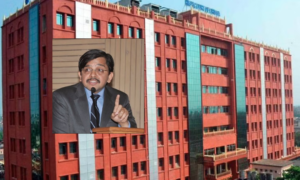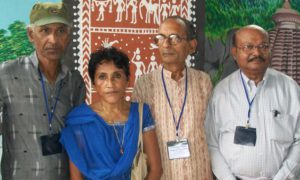A two-member expert team from the National Centre for Disease Control (NCDC), New Delhi has arrived in Sambalpur and has visited the district headquarters hospital to review the situation arising out of the rising number of jaundice cases in the town and its adjoining areas.
The disease has claimed 15 lives in Sambalpur town and its adjoining area since May and infected nearly 1,140 others by December 16, according to district administration officials.
The NCDC team will visit various affected areas to take stock of the conditions there leading to the cause and spread of the disease and collect water samples for analysis. The team will suggest remedial measures for quick control over the spread of the disease as well as its prevention at the grassroots level.
“We have come here on getting reports that several cases of jaundice have been reported. We will help in diagnosing the cause of the disease and its spread and will help the state government authorities in its prevention and control”, said Dr Vikram Katush, NCDC team expert.
“They have come here to help us identify and pinpoint the cause and spread of the disease. They will help us in its prevention and will be giving suggestions for its effective control. During their period of stay here, the team will visit each affected ward and study in a pinpointed manner what was causing the disease of the disease in that particular ward and what was required to curb its spread. It will collect water samples from the affected areas and conduct water quality assurance test. Moreover, the team will be analyzing data trends in the area on the basis of age, gender etc.” said Dr Ashok Kumar Dash, ADMO Sambalpur.
The team will be of great help to us in ascertaining the cause and spread of the disease here, added Dash.
The administration has stopped supplying drinking water through pipelines over fear that sewage may have seeped into the drinking water as new patients continue to pour into the hospitals and private clinics in the area.
Sambalpur town has a population of nearly two lakh which is being supplied safe drinking water through tankers after the outbreak of water-borne disease.
The administration has stopped supplying drinking water through pipelines over fear that sewage may have seeped into the drinking water as new patients continue to pour into the hospitals and private clinics in the area.
Health officials are going door to door in the city as a part of the awareness campaign launched about preventing the spread of the disease. People are being urged to drink only boiled water.
Besides, local authorities have started an operation to overhaul the water supply pipes, most of which run along the drainage system.
Commenting on the cause and spread of jaundice in the town convenor of non-government organisation Water Initiatives Odisha (WIO) Ranjan Panda said the Mahanadi river which supplies water to the city has been heavily polluted as huge quantities of sewage water and solid waste is discharged into it.
“At least 40 per cent of the city residents defecate in open. More than 10,000 people defecate every day on the banks of the river,” Panda said.














